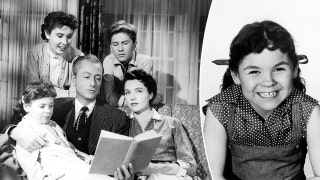John Oates says it’s a ‘miracle’ Hall & Oates lasted 50 years
John Oates says he's ‘reveling’ in his newfound freedom but has no interest in reuniting Hall & Oates after 50 years together.
Hall & Oates were an iconic duo in the ‘70s and ’80s, generating hit after hit, like "You Make My Dreams," "Maneater," "Rich Girl" and many more.
But in John Oates' opinion, his partnership with Daryl Hall proved to be creatively stifling despite their success.
"I can't speak for Daryl, but I think we both prioritized the collective. We both prioritized Hall & Oates because it was so important, it's where we made our name for ourselves," he told Fox News Digital.
"We created an incredible legacy and body of music that will stand the test of time. And because of that, I think we were both constrained. Here again, I won't speak for him, but … I felt that every time I got momentum on an individual or solo project, it had to be curtailed or shortened to really go back to the … what we laughingly used to call the ‘two-headed monster.’"
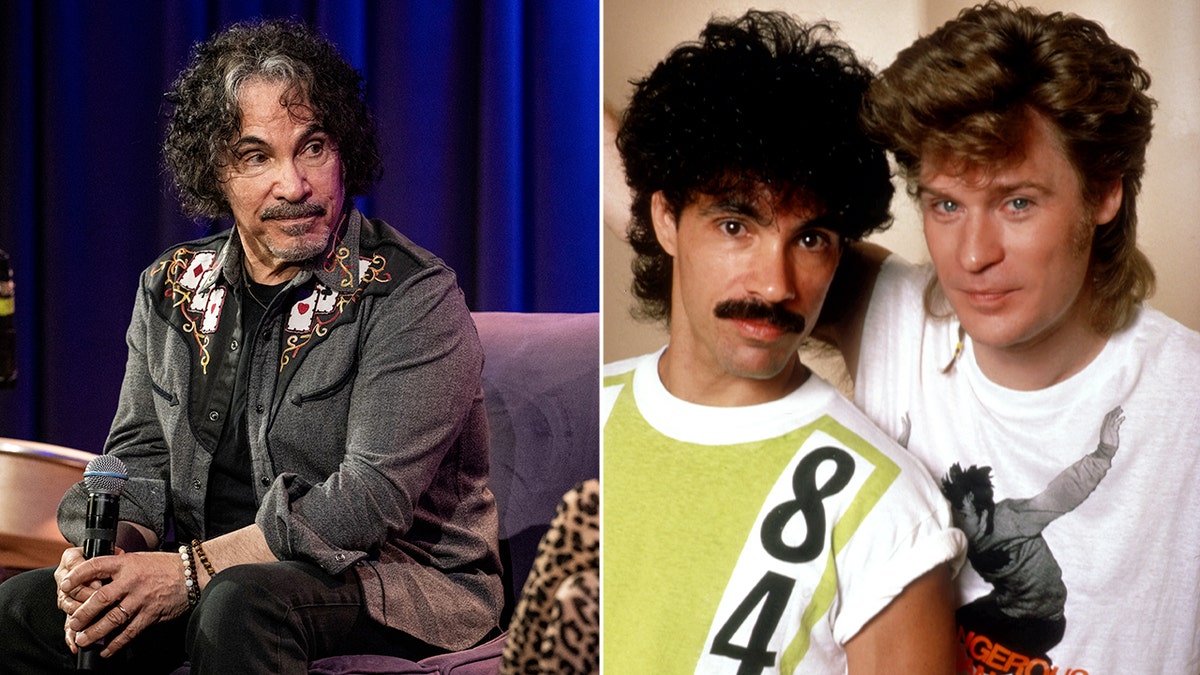
John Oates says he and one-time bandmate Daryl Hall felt "constrained" by their partnership. (Getty Images)
But the "two-headed monster" is unlikely to ever reunite again.
When asked directly about a reunion, Oates said, "I don't think so. I think I'm reveling in relishing this newfound freedom. That's just unbelievable to me. You have to remember, I did this for 50 years. That's a long time. A lot of people can't even conceive of that, much less do it.
"The fact that Daryl and I were able to hold it together that long is a miracle in itself. And I prided myself on my professionalism and putting my all in, you know, really committing to, to making the work that Daryl and I did as good as it could be."
Apart from creative differences, the biggest issue dividing the duo is an ongoing legal battle regarding ownership of their company, Whole Oats Enterprises.
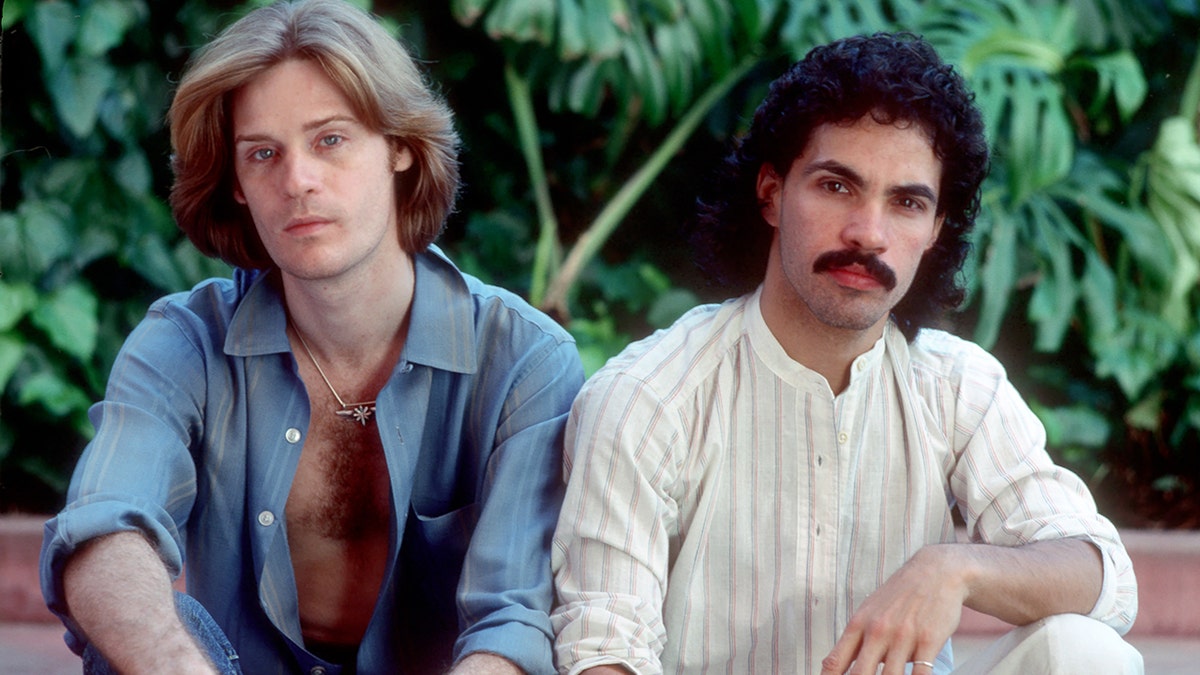
Oates said it was a "miracle" he and Hall stuck together as a duo 50 years. (Michael Ochs Archives/Getty Images)
In November 2023, Hall sued Oates, alleging Oats attempted to sell his share of their jointly owned company without Hall’s permission. Hall also sought a temporary restraining order against his bandmate.
In an interview aired on "GMA," Oates confirmed he did try to sell and offered an explanation.
WATCH: JOHN OATES SAYS IT’S A ‘MIRACLE’ HALL & OATES LASTED 50 YEARS
"When this whole situation got mired in legality and really complex legal wranglings, I got really frustrated," Oates said. "And I said, ‘You know what? Daryl has always wanted to be his own man.’ I said, 'I’m going to give him the opportunity to do that. If I sell my half, he can … do what he wants.
"It was kind of ruining my life, to be honest with you. I wasn’t happy. I said, ‘Well, I’ll just step aside.’ People do it all the time. Look at all the artists who are selling their catalogs. It's pretty common. It's not that big a deal. But Daryl didn’t like the idea that I would sell to a certain third party."
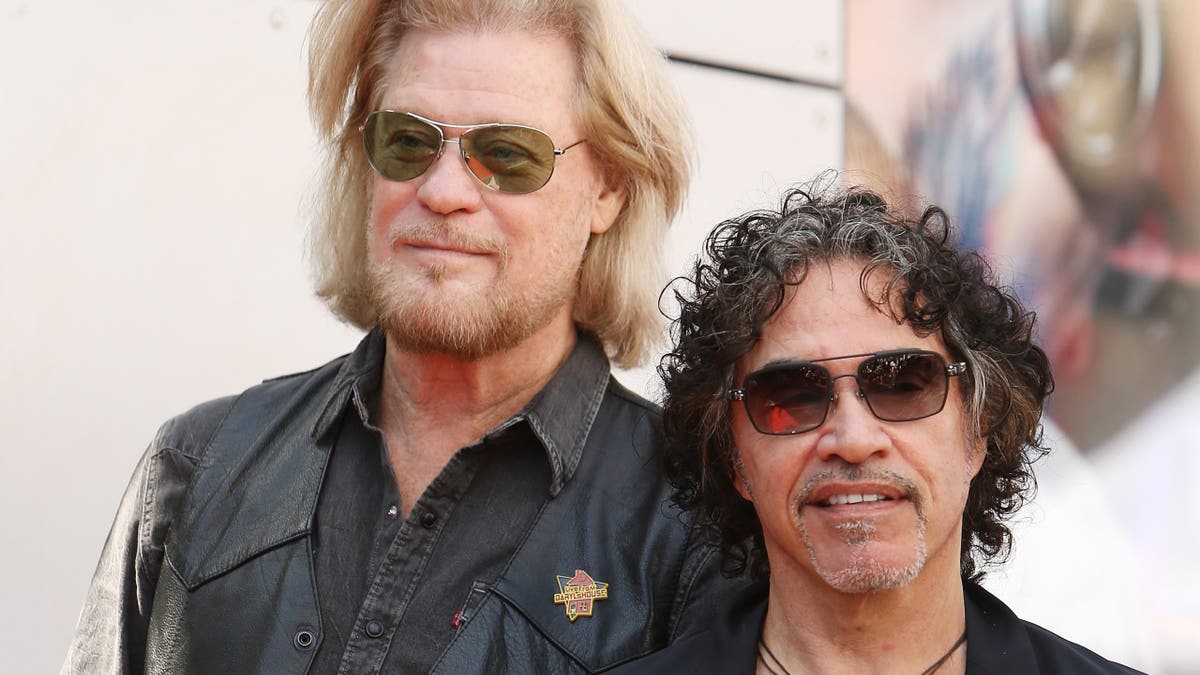
Hall filed a lawsuit against Oates in 2023, alleging he attempted to sell his share of their jointly owned company. (Michael Tran/FilmMagic)
CLICK HERE TO SIGN UP FOR THE ENTERTAINMENT NEWSLETTER
In a recent interview with Variety, Hall spoke about the lawsuit.
"It hit me by surprise," he told the outlet. "I don’t know, man. All I can say is people change, and sometimes you don’t really know someone like you thought you did. Difficulties can be made from things that aren’t difficult, and then it goes to a place where it can never come back from. It’s unfortunate and untimely, but some things just change. People rewrite history and harbor thoughts you had no idea about."
Oates did not address the specifics of the lawsuit but told Fox News Digital his best advice for young artists is, "Get a good lawyer."
"The music business is a very, very complex, business," Oates added. "There's lots of aspects to it. There's the point of view of the artist and what the artist has to do. There's the point of view of the record companies. There’s the point of view of the managers, the PR people, the social media people, the roadies, the band members. They all have different agendas and challenges that they have to deal with.
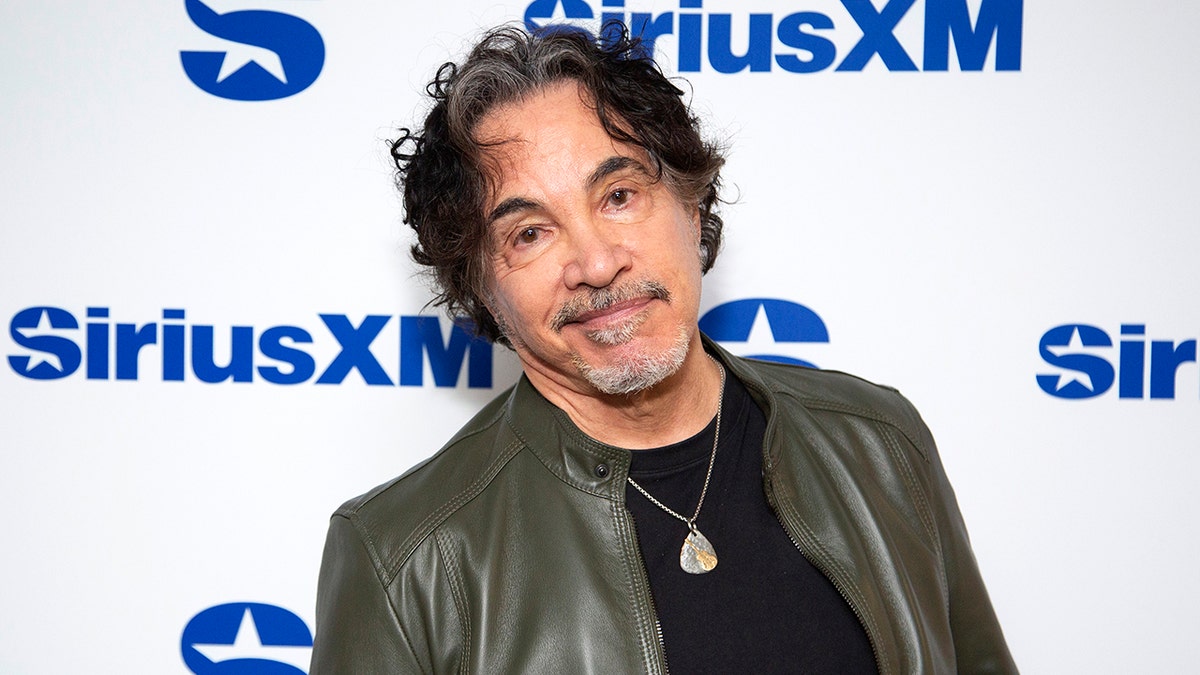
Oates advised any up-and-coming musicians to "get a good lawyer." (Santiago Felipe/Getty Images)
"So, everyone has to navigate the music business in their own personal way, and it's very complicated. Just learning about publishing, it's like going to graduate school. I mean, it's crazy. There's so much minutiae and arcane rules and regulations, laws that have to do with music publishing, that are very hard to understand. So, here again, having a good lawyer certainly helps."
Oates has now turned his focus to his own music with his sixth studio album, "Reunion."
WATCH: JOHN OATES ON NEWFOUND CREATIVE FREEDOM AWAY FROM HALL & OATES
"I've always been exploring my own creativity," the musician said. "The difference now is that I'm fully committed to this. Whereas in the past I've made solo albums, and they've always been kind of a little thing that I've done on the side, because Hall & Oates has always taken precedent, has always taken priority with touring and the various demands on my time. So, I've always kind of had to shoehorn my things in between.
"Now I'm really in a different position, you know. [I’m] obviously not going to be working with Daryl anymore, so I can make my own schedules. I can decide how long I want to take to record if I want to be home, if I want to tour. It's a real, you know, kind of a freeing thing. And so it's an overall freedom of creativity, not just the freedom to make a record."
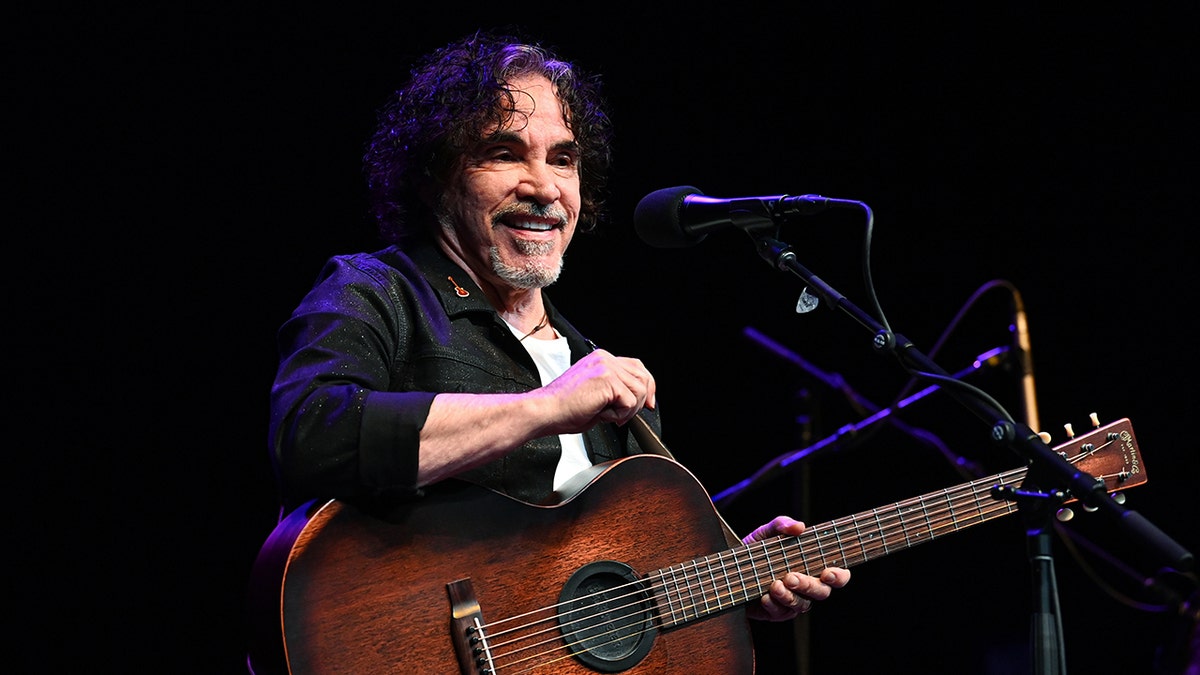
With his new album, "Reunion," Oates said he's been "exploring my own creativity." (Paras Griffin/Getty Images)
LIKE WHAT YOU’RE READING? CLICK HERE FOR MORE ENTERTAINMENT NEWS
With "Reunion," Oates is able to reconnect with the kind of music he did before Hall & Oates, including roots, bluegrass, blues and swing.
"I did all sorts of stuff. And then when I met Daryl, basically we kind of subjugated our individual influences and put them together and created something totally new and original. But that side of me, that kind of authentic, rootsy music side of me, never went away. It was just idling in the background, waiting, waiting for the chance to come out. And now it has.

In Oates' opinion, he and Hall "subjugated" their influences but "created something totally new and original." (Paul Natkin/Getty Images)
"You know, the old cliché, ‘When one door closes, another one opens?’ Well, for me, the way it feels is when one door closed, about 100 doors have opened. There's been these incredible opportunities coming my way, things that, in the past, I probably would have had to pass on or not be able to do because of my other commitments."
WATCH: JOHN OATES SAYS HE AND DARYL HALL FELT ‘CONSTRAINED’ CREATIVELY AS A DUO IN HALL & OATES
Oates is taking the album on tour, joking about another cliché, saying, "I play music for free. You got to pay me to leave my house, get on an airplane, stay in a hotel. That's what I actually get paid for. And that's the truth. I would actually just play for free. But in order for me to do all that, that's a lot. So I need to get paid for that."
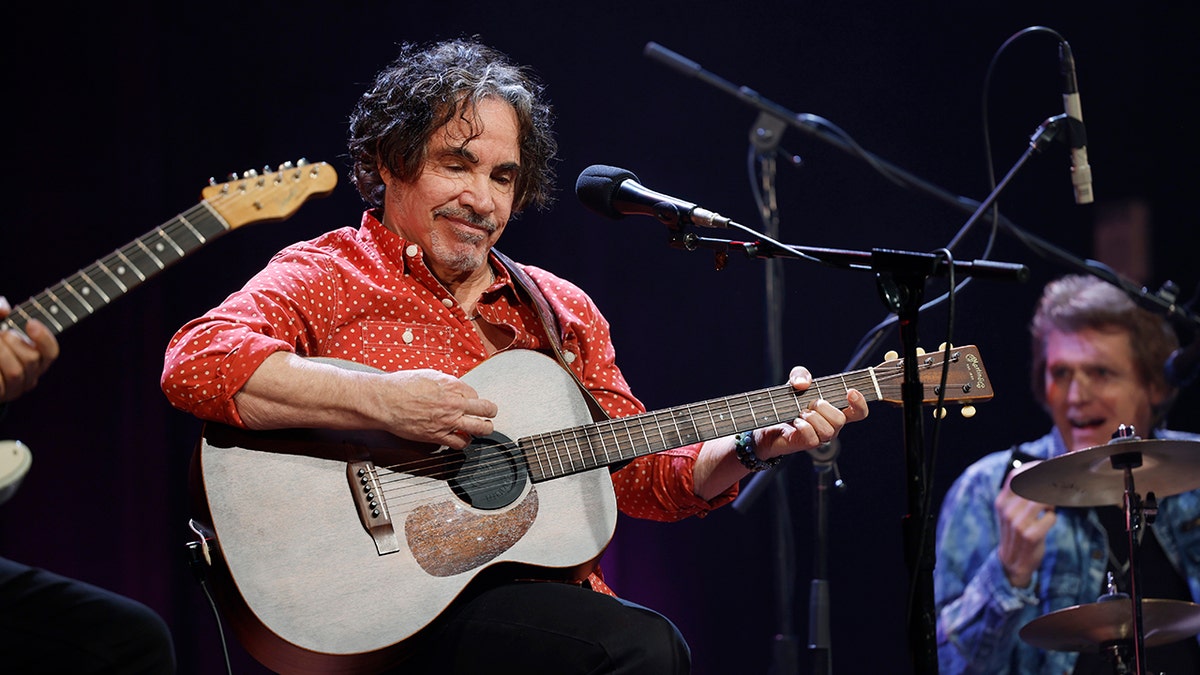
Oates said "incredible opportunities" have come with his new music that wouldn't have happened if he were still part of Hall & Oates. (Jason Kempin/Getty Images)
He noted that in 50 years touring with Hall & Oates, "I’ve never canceled a show, ever."
That includes the time he appeared at Madison Square Garden with Hall, days after surgery, in February 2020.
"I don't want to blow my own horn, but I had my gallbladder removed three days before I played Madison Square Garden, and I still played with a [thing] strapped around my stomach. So, I mean, you know, I'm a pro, and I have a great respect for professionalism. And I put my all into the career of Hall & Oates and on every level."
While touring with his new album, audiences shouldn’t expect any Hall & Oates music in his set list.
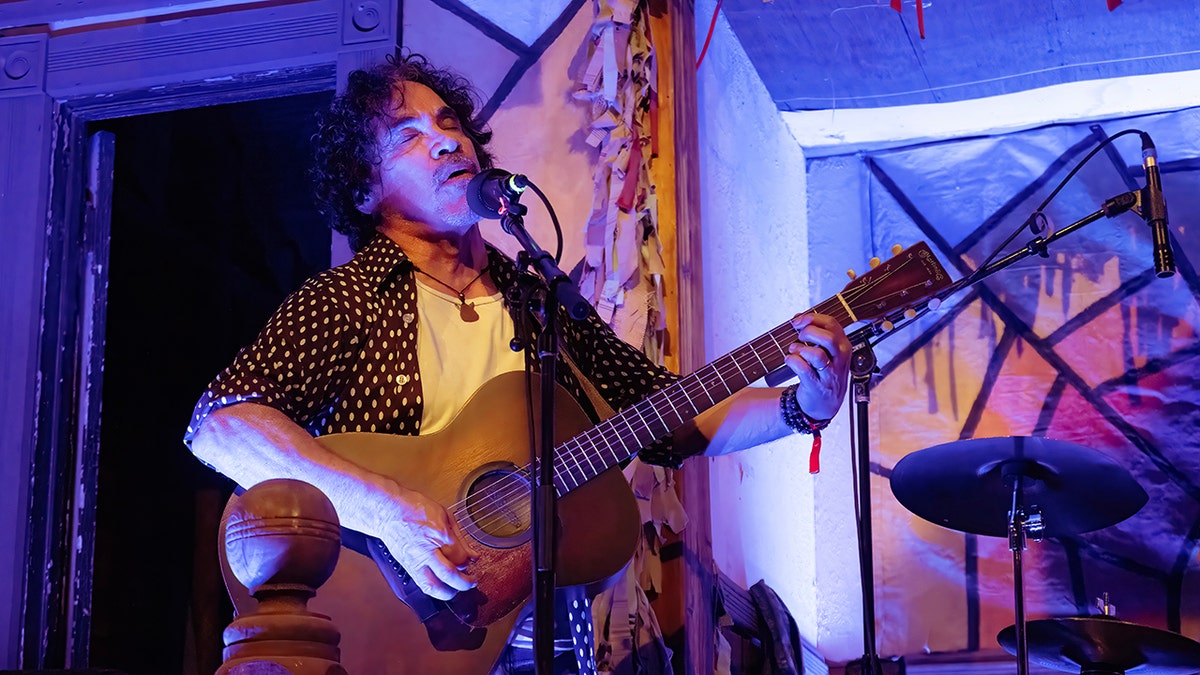
Oates revealed that during a 2020 show at Madison Square Garden, he performed just days after gallbladder surgery. (Astrida Valigorsky/WireImage)
"When I did start doing solo shows, there was an expectation, of course. They see my name, and of course they associate it with Hall & Oates. And they expected to hear Hall & Oates songs. And, at first, I think there was … kind of a … I had to push my way through. But now, and I've noticed this, which is really gratifying creatively for me, is that I go out and play these shows now. No one expects to hear me play Hall & Oates songs.
"And I just say, you know, you want to hear a whole song, you know, go buy the records."
Hall & Oates’ absence from the recent boom of classic rock bands hitting the road is Oates' preference.
"One thing I will say is that I never wanted to become a nostalgic act, and I didn't want to keep doing just a show full of hits. But, believe me, it's one of the greatest problems a musician can have, right? A lot of artists would envy that position, to be able to go out there and play literally an entire concert of hit records, which is what Daryl and I could do.

Oates isn't interested in being a "nostalgia act," with or without Hall. (Stephen J. Cohen/Getty Images)
CLICK HERE TO GET THE FOX NEWS APP
"The negative part of that is that all you're doing is playing a series of hits, and you run the risk of becoming a caricature of yourself, and I really didn't want that to happen. I never wanted that to happen. But that's all behind me now, and that won't happen."
Oates admitted there are plenty of reasons a classic rock band could be interested in touring, including money, and "and audience that loves to hear that."
"What's the last thing you want to hear at a classic rock concert?" he joked. "'Here's a song from our new album,' … That’s how it is. That's a reality."





